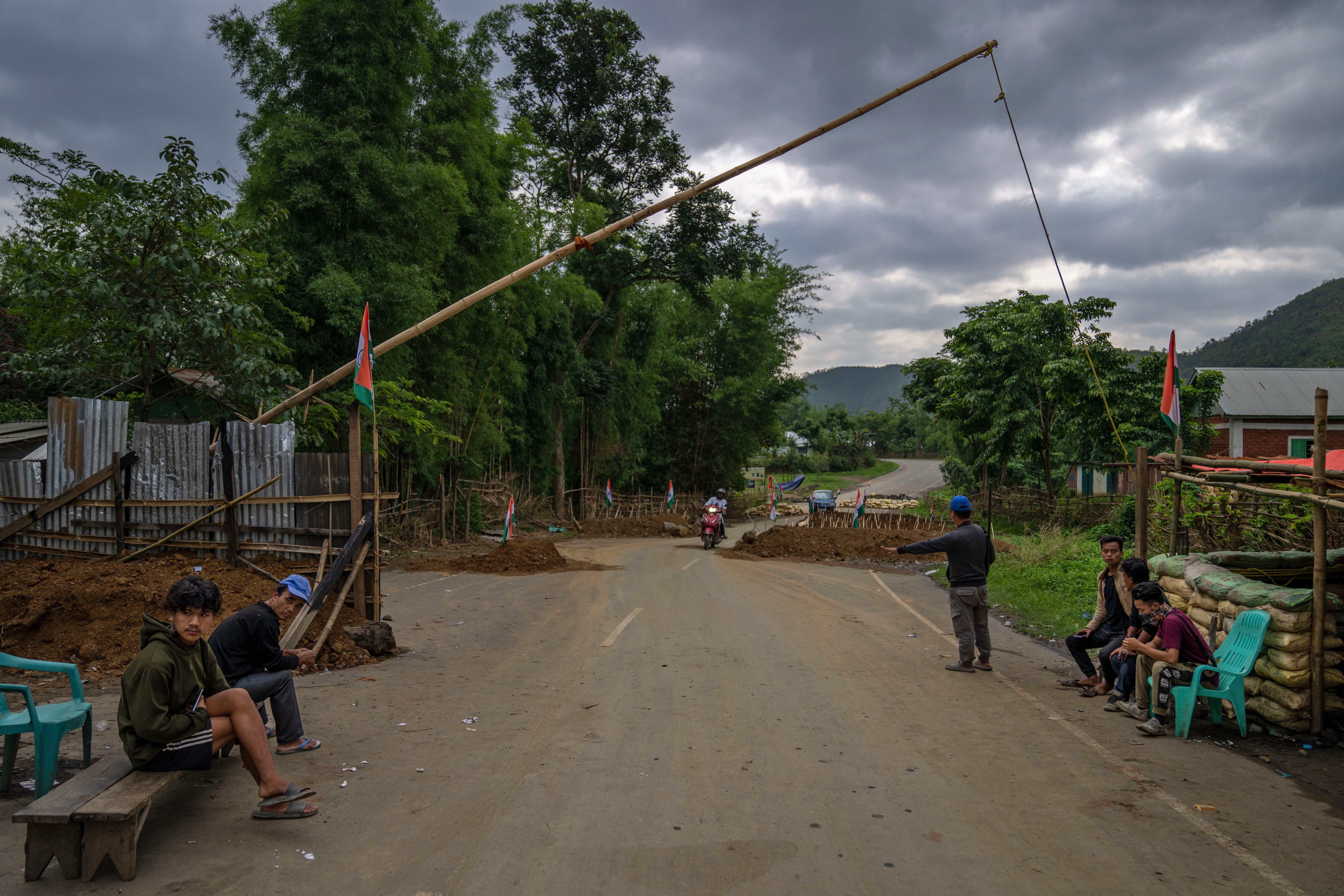Manipur group formally calls for breakaway state as India condemns EU parliament resolution on ethnic violence
Ethnic violence in northeastern state has claimed lives of more than 130 people since May

Your support helps us to tell the story
From reproductive rights to climate change to Big Tech, The Independent is on the ground when the story is developing. Whether it's investigating the financials of Elon Musk's pro-Trump PAC or producing our latest documentary, 'The A Word', which shines a light on the American women fighting for reproductive rights, we know how important it is to parse out the facts from the messaging.
At such a critical moment in US history, we need reporters on the ground. Your donation allows us to keep sending journalists to speak to both sides of the story.
The Independent is trusted by Americans across the entire political spectrum. And unlike many other quality news outlets, we choose not to lock Americans out of our reporting and analysis with paywalls. We believe quality journalism should be available to everyone, paid for by those who can afford it.
Your support makes all the difference.A top tribal association in India has demanded a separate state be carved out in the wake of ethnic violence that has left more than 130 people dead since May.
The northeastern state of Manipur has been wracked by violence after indigenous communities, predominantly the Kukis, protested against the demand for granting tribal status to the majority Hindu Meitei community. Since then, people from both communities have engaged in attacks on each other’s residences, vehicles, as well as places of worship such as churches and temples.
The apex body of all Kuki tribes, called the Kuki Inpi Manipur (KIM), on Thursday demanded a separate state be created out of Manipur. KIM said the decision for a new state along with the demand for a separate administration under Article 3 of the Indian Constitution was taken on 12 July.
“Following its [KIM’s] crucial cabinet meeting on July 12, 2023, and the executive decision taken thereof, the Kuki Inpi Manipur explicitly stated its demand for separate administration in the form of separate State under Art. 3 of the Indian Constitution,” said a statement issued by Khaikhohauh Gangte, KIM’s general secretary.
As per Article 3, the Indian parliament has the authority to establish a new state by either separating territory from an existing state, merging two or more states or parts of states, or joining any territory with a part of any state.
Mr Gangte, according to Telegraph India, said the decision was taken because there has taken place a “hounding” of “all” the Kukis from the Imphal Valley after “burning down their colonies and settlements and churches”.
He said the Kukis shall “continue” to strive together “with sweat and blood to protect our rights and liberties until our political demand is realised in the form of separate state”.
The Meitei community, comprising mainly of Hindus and constituting approximately 50 per cent of the state’s population, has been advocating for recognition as a Scheduled Tribe (ST) for several years.
Under Indian law some government jobs, college admissions and electoral seats – from village councils to parliament – are reserved for communities under the ST category as a form of affirmative action to tackle historical structural inequality and discrimination.
But other ethnic groups, many of whom are Christians, express concerns that granting the Meiteis this status could potentially result in unequal competition for employment opportunities and other related benefits.
The Meitei community holds a dominant presence in positions within the state government and has witnessed greater economic and infrastructural progress compared to other ethnic groups.
Members of the community predominantly reside in the six valley districts of Manipur, while the mostly Christian Kuki and Naga tribes inhabit 10 hill districts.
Meanwhile, India has denounced a resolution passed by the European parliament regarding the ethnic conflicts, calling it an “interference” in its internal affairs.
The resolution adopted by the EU parliament denounced “in the strongest terms nationalistic rhetoric deployed by leading members of the BJP party”.
India reacted to the EU parliament resolution by saying it was “unacceptable” and was a reflection of a “colonial mindset”.
“Such interference in India’s internal affairs is unacceptable, and reflects a colonial mindset,” Arindam Bagchi, a spokesperson for the India’s foreign ministry, said in a statement.
“Indian authorities at all levels, including the judiciary, are seized of the situation in Manipur and are taking steps to maintain peace and harmony and law and order. The European Parliament would be well advised to utilise its time more productively on its internal issues.”
The resolution called on India to “take all necessary measures and make the utmost effort to promptly halt the ongoing ethnic and religious violence, to protect all religious minorities, such as Manipur’s Christian community, and to pre-empt any further escalation”.
So far, more than 50,000 have been displaced in Manipur due to the violence, 1,700 houses have been destroyed and over 250 churches and several temples have been wrecked.
The EU parliament also noted that the violence in the northeastern state had been instigated by “politically motivated, divisive policies promoting Hindu majoritarianism” as well as increased activity by militant groups.



Join our commenting forum
Join thought-provoking conversations, follow other Independent readers and see their replies
Comments